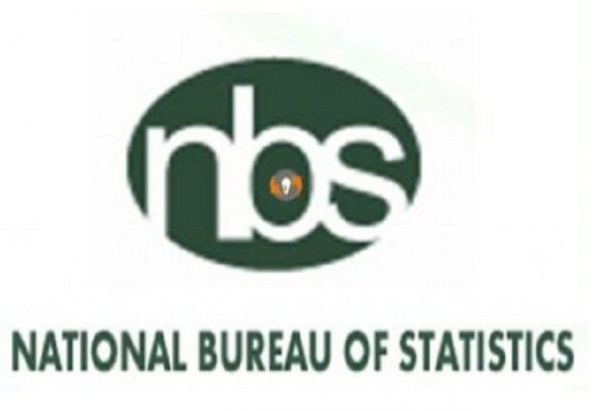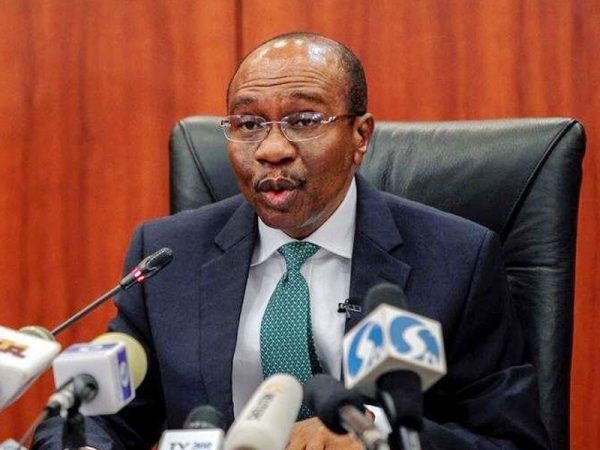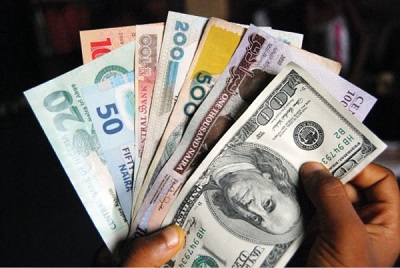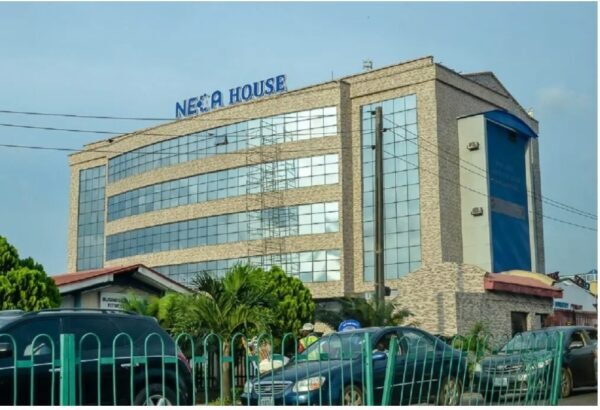GDP Grows By 0.51% In Q1, Economy Still Weak, Experts Lament
 Economic and financial experts have raised concerns as the Nigerian economy grew slower in the first quarter of this year, compared to the same period of 2020.
Economic and financial experts have raised concerns as the Nigerian economy grew slower in the first quarter of this year, compared to the same period of 2020.
The National Bureau of Statistics said on Sunday that the Gross Domestic Product grew by 0.51 per cent in Q1 2021, compared to the 1.87 per cent growth rate recorded in Q1 2020.
The experts, in separate interviews with our correspondents, described the Q1 GDP growth as sluggish and weak, as declines were recorded in critical sectors of the economy amid rising poverty and unemployment.
The country emerged from recession in Q4 2020 as the GDP expanded slightly by 0.11 per cent, with annual real GDP growth of -1.92 per cent.
“The Q1 2021 growth rate was slower than the 1.87 per cent growth rate recorded in Q1 2020 but higher than 0.11 per cent recorded in Q4 2020, indicative of a slow but continuous recovery,” the NBS said in the GDP report for Q1 2021.
According to the report, real GDP grew at -13.93 per cent in Q1 2021, compared to Q4 2020, reflecting a generally slower pace of economic activities at the start of the year.
It said in the quarter under review, aggregate GDP stood at N40.01tn in nominal terms, up 12.25 per cent from N35.65tn in Q1 2020.
The statistics office said the average daily oil production fell to 1.72 million barrels per day in Q1 from 2.07 million bpd recorded in the same quarter of 2020 but higher than the production volume of 1.56mbpd recorded in Q4 2020.
The oil sector contracted by 2.21 per cent in Q1 2021, compared with a growth rate of 5.6 per cent in the same period last year. Its contribution to the aggregate GDP fell to 9.25 per cent from 9.5 per cent in Q1 2020.
The oil sector had contracted by 19.76 per cent in Q4 2020, with a contribution of 5.87 per cent to the GDP.
The non-oil sector grew by 0.79 per cent in real terms in Q1 2021, 0.75 per cent lower than the rate recorded in the same quarter of 2020 and 0.89 per cent lower than that of Q4 2020.
“Growth in the non-oil sector was driven mainly by the information and communication (telecommunication) sector while other drivers include agriculture (crop production); manufacturing (food, beverage and tobacco); real estate; construction and human health and social services,” the NBS said.
The non-oil sector accounted for 90.75 per cent of aggregate GDP in Q1 2021, higher than 90.50 per cent in Q1 2020 but lower than 94.13 per cent in Q4 2020.
The agriculture sector grew by 15.14 per cent in nominal terms in Q1 2021, showing a decline of 7.33 per cent from the corresponding quarter of 2020 but an increase of 1.11 per cent when compared with the preceding quarter’s growth rate of 14.03 per cent.
Agriculture contributed 21.42 per cent to nominal GDP in Q1 2021, higher than 20.88 per cent in Q1 2020 but lower than 24.23 per cent in Q4 2020.
Nominal GDP growth of the manufacturing sector was recorded at 32.10 per cent, 3.62 per cent higher than the 28.47 recorded in Q1 2020 and 7.50 per cent higher than 24.60 per cent in Q4 2020.
Information and Communications sector grew by 7.86 per cent, 1.07 per cent lower than the 8.94 per cent recorded in Q1 2020, and 8.46 per cent lower than the rate recorded in Q4 2020.
The Chairman of Foundation for Economic Research and Training, Prof. Akpan Ekpo, said, “The growth rate is still sluggish and fragile, below what we expected. It is lower than the population growth rate which is about three per cent. Do not forget there is also high inflation and unemployment, especially among the youth.”
“We should maintain the growth trajectory but we need to understand the distinction between growth and development, as growth is not equal to development.”
The former director-general of the West African Institute for Financial and Economic Management said the government should effectively implement the fiscal policies and the economic sustainability plan, as well as work hard towards infrastructural restoration to enable the economy to grow faster than the current rate.
A professor of political economy, Prof. Pat Utomi, said long term strategy was required for sustainable economic growth.
He said, “Looking at our population growth rate and the slow progress we have made with the Millennium Development Goals, the apparent positive flux is on the back of improved oil prices.
“Coming out of the COVID-19 induced recession, the rise of oil prices will naturally provide a boost to the GDP. But it is not sustainable, therefore the country has to diversify its export earnings away from oil.
“Import restrictions, bans and tariffs are short term strategies. We need long term strategies, an example of which is the CBN’s provision for the Export Promotion Council to fund Agricultural Exports. It is a good plan, but needs transparency and accountability to succeed.”
A professor of capital market at the Nasarawa State University Keffi, Uche Uwaleke, said the GDP report reflected an economy already on the path of gradual economic recovery.
“But the report also reveals disturbing pattern in the real GDP growth rate. Declines were recorded in critical sectors of the economy such as agriculture, ICT, real estate and transportation. This may not be unconnected with the rising insecurity in the country.
“That the non-oil sector dropped should be of concern to both the fiscal and monetary authorities.”
Uwaleke added, “Although still weak at 0.51 per cent, it is interesting to note that the manufacturing sector is now out of the negative territory, increasing from -1.51 per cent to 3.40 per cent.
“Equally noteworthy is the moderation in the negative performance in sectors like trade, accommodation and education.”
According to him, the increase recorded in the health sector from 3.05 per cent in Q4 of 2020 to 4.65 per cent clearly shows that the country is winning the war against the COVID-19 pandemic.
“Positive but fragile GDP growth rate and still below population growth rate, meaning poverty is on the rise,” the Head of Tax and Regulatory Services at PwC Nigeria, Taiwo Oyedele, said on Twitter.
Ahead of the release of the GDP report, analysts at Capital Economics and the Financial Derivatives Company Limited had expected the Nigerian economy to have contracted in Q1.
Analysts at Lagos-based FDC, led by foremost economist Bismarck Rewane, projected that the economy contracted by 0.5 percent in Q1.
“We are projecting a mild contraction of 0.5 per cent.” The analysts said, adding that the Monetary Policy Committee of the Central Bank of Nigeria, scheduled to meet on Monday and Tuesday, would maintain its current stance and watch the indicators closely.
Capital Economics, a London-based economic research firm, sees the oil sector dragging down headline GDP in Q1, with the economy expected to have shrunk by 0.3 per cent.
The Emerging Markets Economist at Capital Economics, Virag Forizs, said the figures due out on Monday ‘will show that Nigeria’s economy contracted again in Q1 after a small expansion in Q4’.
She said, “In early 2021, OPEC+ quotas continued to weigh on the key oil sector. Over Q1, average monthly oil production, at 1.55 million bpd, was essentially unchanged from Q4.
“Outside of the oil industry, a severe second wave of COVID-19 likely depressed economic activity. The rebound in non-oil sectors probably slowed in Q1. Taken together, we think that GDP fell by 0.3 per cent year-on-year in Q1.”
Forizs said looking ahead, activity might pick up across the board with easing OPEC+ quotas and the cloud of the second wave lifting with the drop-back in virus cases and a vaccine rollout under way.







